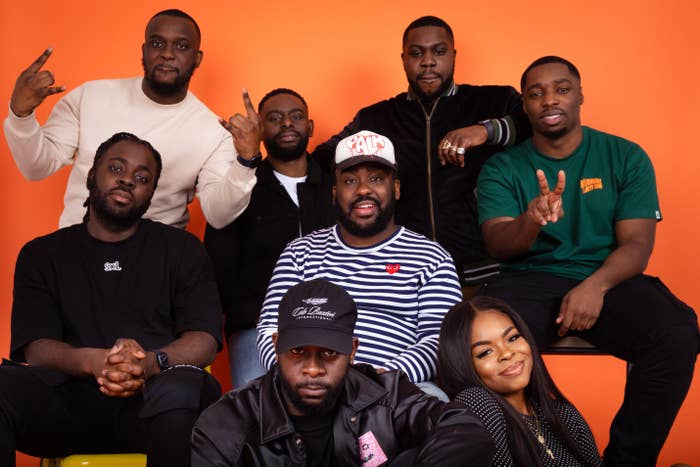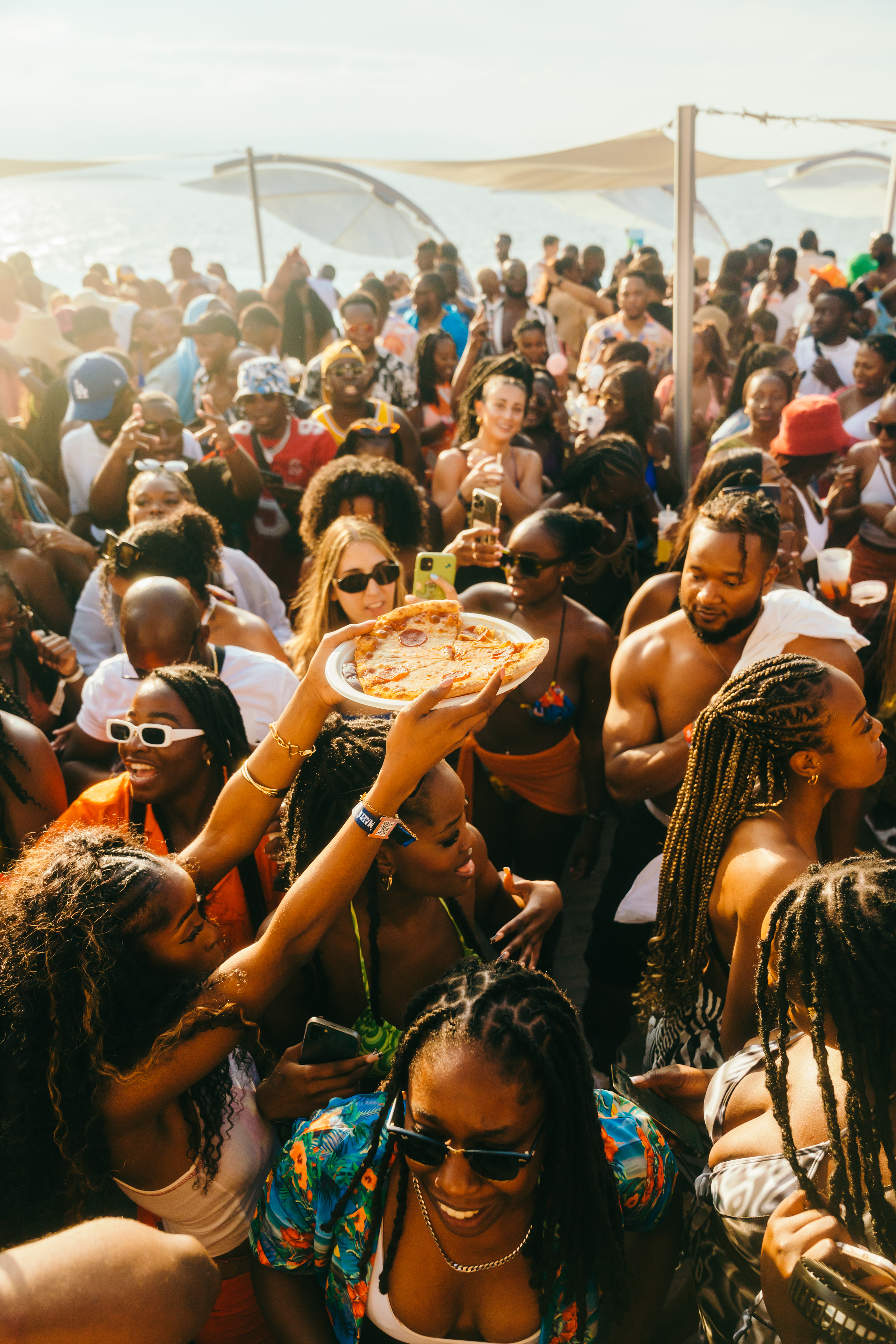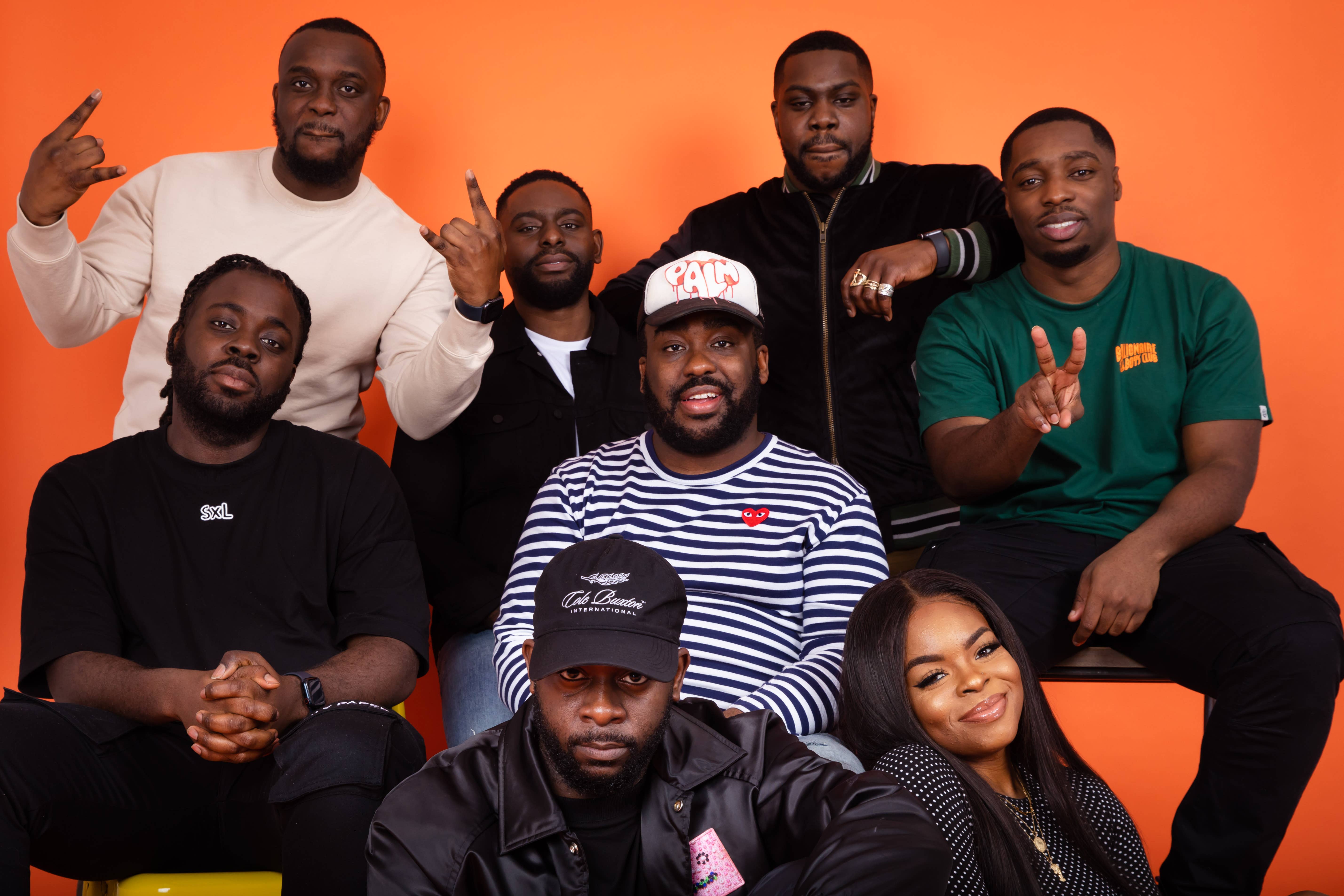
Since the Swinging Sixties, London City has been seen as a hotspot for creativity on a global scale, known for its fashion and music exports as much as its impact in film and fine art. Whatever it is, England’s capital has produced countless people, countless moments, that have been able to stand toe-to-toe with the best of ‘em from anywhere on God’s green Earth.
From iconic raves that helped spawn whole genres (see: ska, jungle, UK garage, grime, dubstep...) to iconic muses such as Kate Moss and Maggie Smith—when you think about how many creators have come from this island, one thing you can’t ignore are the contributions that have been made by Black people. The same people dominating in culture today—on every level.
After the explosion of scenes like UK garage and grime—in the ‘90s and Noughties, respectively—it felt like there was a partying disconnect in London. UK funky had its moment, but it didn’t last long. For myself, when I was in university, it felt like the selection of parties we had to enjoy were quite limited: if it wasn’t a grime or house dance at Fabric or The Nest, it was a cheesy uni rave in a student union. But beyond that, many of us were still searching for spaces to congregate—to be ourselves, unapologetically—as Black folk who might want more from a night out than seeing MCs shout down the mic or having ravers—off their rockers—shuffling in your face.
Tired of having to pick between micro-aggressive DJ sets in the Hip-Hop Room of nightclubs like TigerTiger or Oceana, or just praying you hear some Chaka Demus or D’banj in your local Be At One, the option to have a place to unwind after a long week of surviving wasn’t always afforded to someone like myself. But it’s 2022, and times have changed. With the introduction of parties—for the day and the night—like Recess and DLT (Days Like This), Black Londoners have finally found their own spaces to forget the stresses of London’s hustle and bustle.
Team DLT have had a groundbreaking year, to say the least. Having thrown their very first festival in Malta and picked up the GUAP Gala award for Business Of The Year, we managed to catch up with Will Stowe—head of brand partnerships at DLT—to discuss conception, motivation, and new iterations. Launched by four friends back in 2016, inspired by the day parties they’d experienced in New York whilst interning there, we get to know the story behind Days Like This, and how—having cemented their status in the city—they aim to take this experience to the rest of the diaspora.
“Parties are culturally what many of us are accustomed to. It’s in our DNA. Our older brothers, sisters, aunties, uncles and parents did it, so we’re just keeping tradition in new ways.”

COMPLEX: How’s it going, Will? Can you explain what your role is at DLT and who else makes up the team?
William Stowe: Yeah, so the team is comprised of four founders—Michael Amusan, Anthony Iban, Ife Iwosika and Bosun Apata—and seven members of staff: myself, who deals with brand partnerships; marketing manager Patricia Odje; digital marketing manager Rami Kadri; creative director Ali Kamara; team coordinator Chris Kutoya; social media manager Feji Merino, and music programmer Alex Duyile.
So, how did Days Like This actually come about? What’s the origin story here?
The journey began in 2015, in New York City, where three friends—Anthony, Bosun and Michael—took on an investment banking internship. With NYC being the electric city that it is, they were drawn to the popular brunch day parties there, and that sparked the vision to bring the experience back home to London. The initial goal was to bring the same joy and excitement they had in New York back to the UK, so that we also had somewhere to go and feel accepted.
Did you ever imagine yourself working full-time for an events brand like DLT? It’s 100% Black-owned, always sells out, and has become a staple in the city for music-lovers and vibe-creators. You all must really love your jobs.
All of us on the team come from homes with strong values with expectations to thrive; however, finding these paths haven’t always been straightforward. Some of us were in retail and some were in corporate offices, but we’ve all just learned to juggle and do multiple things at once so that we can do the thing we love, which is DLT. Collectively, we can say that we’ve always been passionate about being forerunners in our communities, showing that success can be attained positively with legitimate means. Our career paths in different industries mean our skillsets are varied, but useful for running a business.
Black-run day parties/brunches have become all the rage since we’ve been allowed back outside, and that’s all around the country. Why do you think parties and festivals like DLT are important for the culture?
Parties are culturally what many of us are accustomed to. It’s in our DNA. Our older brothers, sisters, aunties, uncles and parents did it, so we’re just keeping tradition in new ways. Taking a local party to festival stages is a big sign for growth and an intentional move to an aspect of the legacy we want.
Why did you decide 2022 was the right time to launch the first Days Like This festival?
We had big plans and it’s safe to say 2020 was the year we really believed would be our time to blow. Covid came and our worlds were impacted in ways none of us could imagine—we really had to go back to the drawing board. During the pandemic, we discovered how to exist and engage but most importantly, we planned for when things go back to normal so we could really serve our loyal and amazing supporters. We couldn’t execute in the way we wanted for two years so it was only right we gave an experience like never before and pushed the boundaries.
“We’re passionate about four things: the betterment of Black people, food, music and creativity, and over the next five to ten years, we see DLT creating even more opportunities for our community to thrive in these areas. That’s our aim.”
What are the biggest challenges/differences between running a party and running a festival? One overseas, in Malta, might I add.
The issues faced with local events are mostly in keeping the venue relationships in good standing—working closely with bar staff, caterers, onsite paramedics and security for a smooth day, with a few hiccups here and there. Having a festival, though, means you think and operate at scale whilst delivering the intricate details expected for a local event so each attendee will remember their time in an elevated way. Organising events for a day party is one thing, but working with hotels and venues across several days had its setbacks and learnings. One thing we can say is over-communicate on everything and be ready for anything.
The line-up for DLT: Malta was next level.
Anthony Iban, who quietly operates in the background, masterminded that incredible line-up. The artists and DJs are what really gripped hearts and influenced the decision to fly with us to Malta. Kaytranada, WSTRN, Kabza De Small and Wizkid are names you won’t often see on the same bill, but Anthony saw this being the winning formula and it worked out very well.
What are the biggest lessons you learnt from the Malta trip?
Trust your instincts and go all-in with your decisions. You can never start too early to plan, and always consider multiple worst-case scenarios, because you can never think of enough. On the flipside, sun and music are a match made in heaven! It always works.
Do you ever worry about your audience growing and changing too much, diluting the community-like essence?
This is something that we think about and notice often. New and returning faces hold equal importance to us; we can never neglect either, but we can also never be stagnant. There isn’t a cheque that has or will be written that could afford our integrity when it comes to the essence of DLT. Our way of avoiding dilution of the brand is to always think, “What will our supporters think and feel, and can we live with this?”
What do you want people to take away from your events, and what do you envision DLT being in the next five to ten years?
For first-timers and existing supporters, we aim for our events to be the place where you can take a load off and just enjoy yourself. We want people to leave with positive and beautiful examples of what Black-owned events look like—tell a friend to tell a friend! [Laughs] For 2023, we plan to grow our team, enhance the experience and mark our ground globally. It’s time we had that full-circle moment, so we will be taking DLT to New York City—the place that inspired it all. We’re passionate about four things: the betterment of Black people, food, music and creativity, and over the next five to ten years, we see DLT creating even more opportunities for our community to thrive in these areas. That’s our aim.






